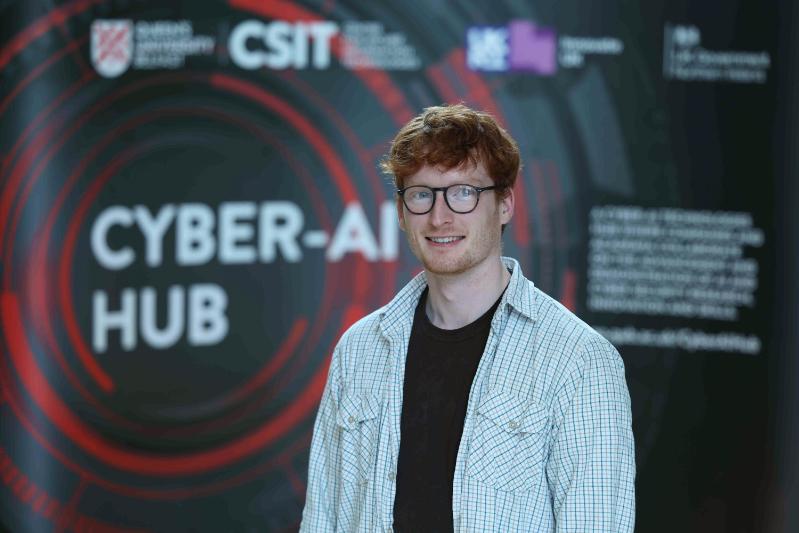What It's Like to Study a PhD in Cyber Security | Niall Canavan
As part of CyberNI Week, we had the pleasure of interviewing Niall Canavan, who is currently enrolled in a doctoral training programme at CCIT. Read on to learn about Niall's exciting journey and insights into cybersecurity.

Welcome, Niall! Do you want to introduce yourself? What is the name of your research topic?
Hi there! Nice to chat with you. My name is Niall Canavan, and my PhD is in Quantum Integrated Resilient Cryptography. This involves combining post-quantum cryptography with quantum key distribution into hybrid protocols, aiming to enhance security by leveraging the strengths of both approaches.
How did you first come across the opportunity to pursue a fully funded PhD, and what drew you to it?
Well, I was originally considering going into industry after graduating. However, I stumbled upon this opportunity while scrolling through Facebook. I saw it advertised, and my immediate thought was, "Yeah, this looks brilliant!" It gave me the opportunity to earn some money and get a PhD at the same time, which seemed like the best of both worlds.
What was it that drew you to cyber security in the first place?
My interest in cybersecurity stemmed from my background in Maths and Computer Science during my undergraduate and master's studies. Cryptography particularly fascinated me, and my PhD project felt like an extension of my previous studies.
Describe your experience transitioning from a master's programme to a PhD
Transitioning from a master's programme to a PhD has been quite different. A master's course is intense with multiple projects and deadlines, whereas a PhD is more focused on one big task with a greater emphasis on independent learning. Maybe I didn’t anticipate that before I started.
But I guess, when you’re at the frontier of knowledge, there are not many textbooks!
What’s the community like when you’re a PhD Researcher at Queen’s University?
The community at Queen’s University is fantastic. Here in the ECIT building, there’s a great cohort that has started this year. A group of about 10 or 12 of us all together. We’re really supportive of each other and we have the craic together. It’s been nice to have that support, over a cup of coffee or maybe talking about technical issues.
What networking opportunities have you encountered during your PhD?
I've had plenty of networking opportunities so far. At the beginning of my PhD journey, I attended the UK Space Conference at the Waterfront. There, I had the chance to engage with numerous academics and industry professionals in the field of cryptography, which was fantastic for making connections.
Additionally, my industry partner for this PhD is Qualcomm, and I've had the opportunity to meet and discuss my project with some of their team members at their office in Cork. It's been a great experience for networking and collaboration!
Walk us through a typical day as a PhD student in cyber security.
A typical day for me involves starting off with reading research papers, followed by lunch with fellow cohort members, and then working on more technical aspects of my project in the afternoon. Maybe some coding or other aspects of the project that are more hands-on.
What advice would you give to someone considering pursuing a PhD in cybersecurity?
If you enjoy the independent learning part of your master's project and have an interest in cybersecurity, a PhD could be a great fit for you.
Before starting your cybersecurity degree, what misconceptions did you have about the field?
Before starting my PhD, I believed it was all about hackers breaking into systems. However, I've learned it's a much more varied field, with niche topics like cryptography and aspects of quantum physics.
What has been the most unexpected aspect of your PhD experience in terms of day-to-day work and research processes?
Initially, I thought that starting the PhD would be a lot more fast-paced. But, that’s not the case. At the moment, I’m spending most of my time reading and researching. It can be quite intensive, but it’s good preparation.
We’re asking everyone to challenge a common cybersecurity myth. Could you explain why password security is so important?
Your passwords won't keep you safe if they're not good passwords! For a start, if your passwords are too simple, any hacker will be able to guess them. So don’t use easy passwords, and don’t use the same password all the time. Be safe and use different passwords.
Media
If you want to find out more about PhD Opportunities in fields like this check out the current projects here